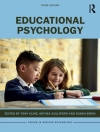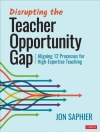Addressing literacy and disadvantage requires high-quality teaching, first and foremost: there are no quick fixes, simplistic solutions or silver bullets.
Both research and professional evidence from schools have revealed a strong association between social disadvantage and achievement in literacy: in fact, it has been a concern for over 70 years. Yet, many trainee teachers, and teachers in general, feel ill-equipped to deal with the issue. This book supports trainee teachers to explore the complex relationships between literacy achievement and social background. It offers practical strategies for teaching and supports trainee teachers to understand that:
*children’s individual backgrounds need to be valued and drawn upon;
*deficit descriptions of disadvantaged children and low expectations must be avoided and challenged;
*schools, teachers and classrooms must provider rich literacy environments for learning.
Inhoudsopgave
Understanding the relationship between literacy and social disadvantage
Building foundations for literacy in the Early Years
Talk for learning and democratic participation
Reading the world
Words and worlds: the challenge of vocabulary
Creating a community of writers
Enriching literacy with digital resources
Literacy environments, culture and experience
Over de auteur
Clare Dowdall is a Lecturer in Education (Language and Literacy) at Exeter’s Graduate School of Education. Prior to this, Clare was Lecturer in Language and Literacy Education at University of Plymouth. Clare has a range of experiences in teaching and researching literacy education. She graduated from Exeter University with a BA(Ed) in English and Drama in 1997, worked in Devon as a teacher and literacy subject leader, and then completed an MA(Ed) in Language and Literacy with University of Plymouth. Clare completed her Ph D in children′s text production in online social networking sites, also with University of Plymouth.












